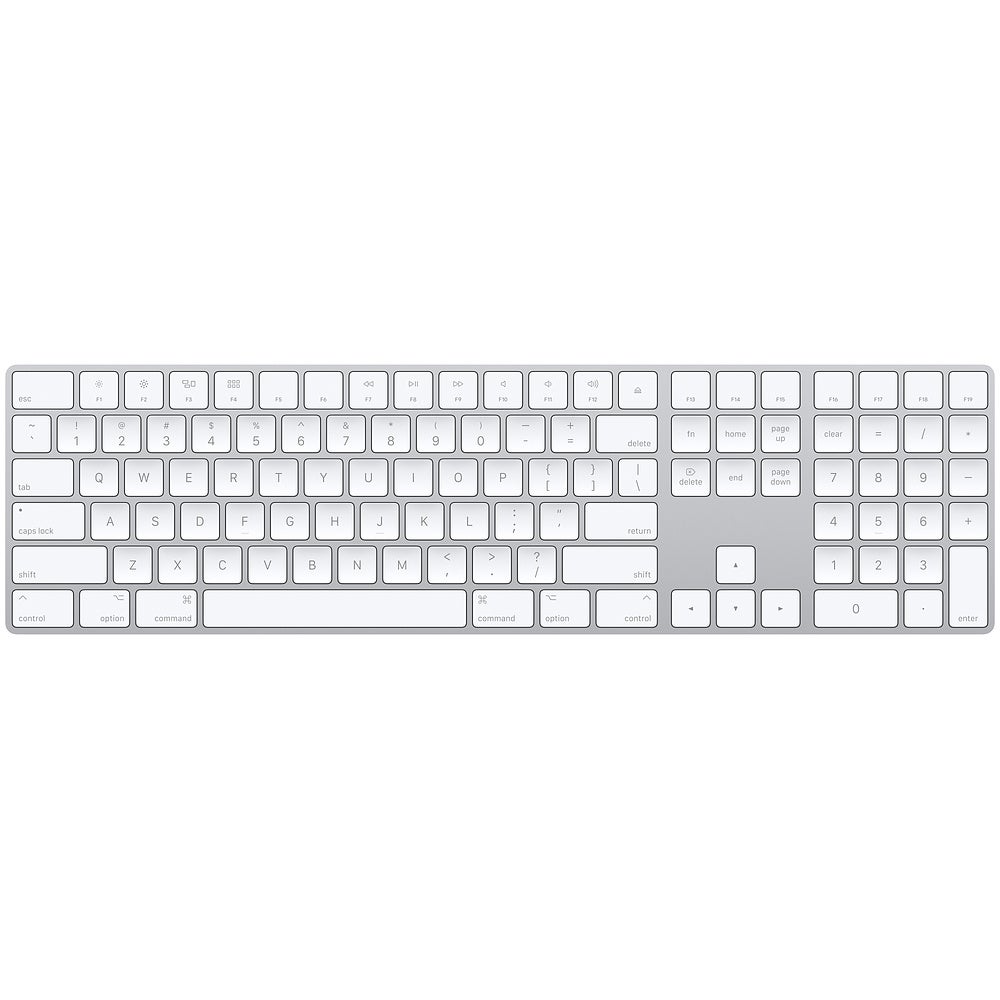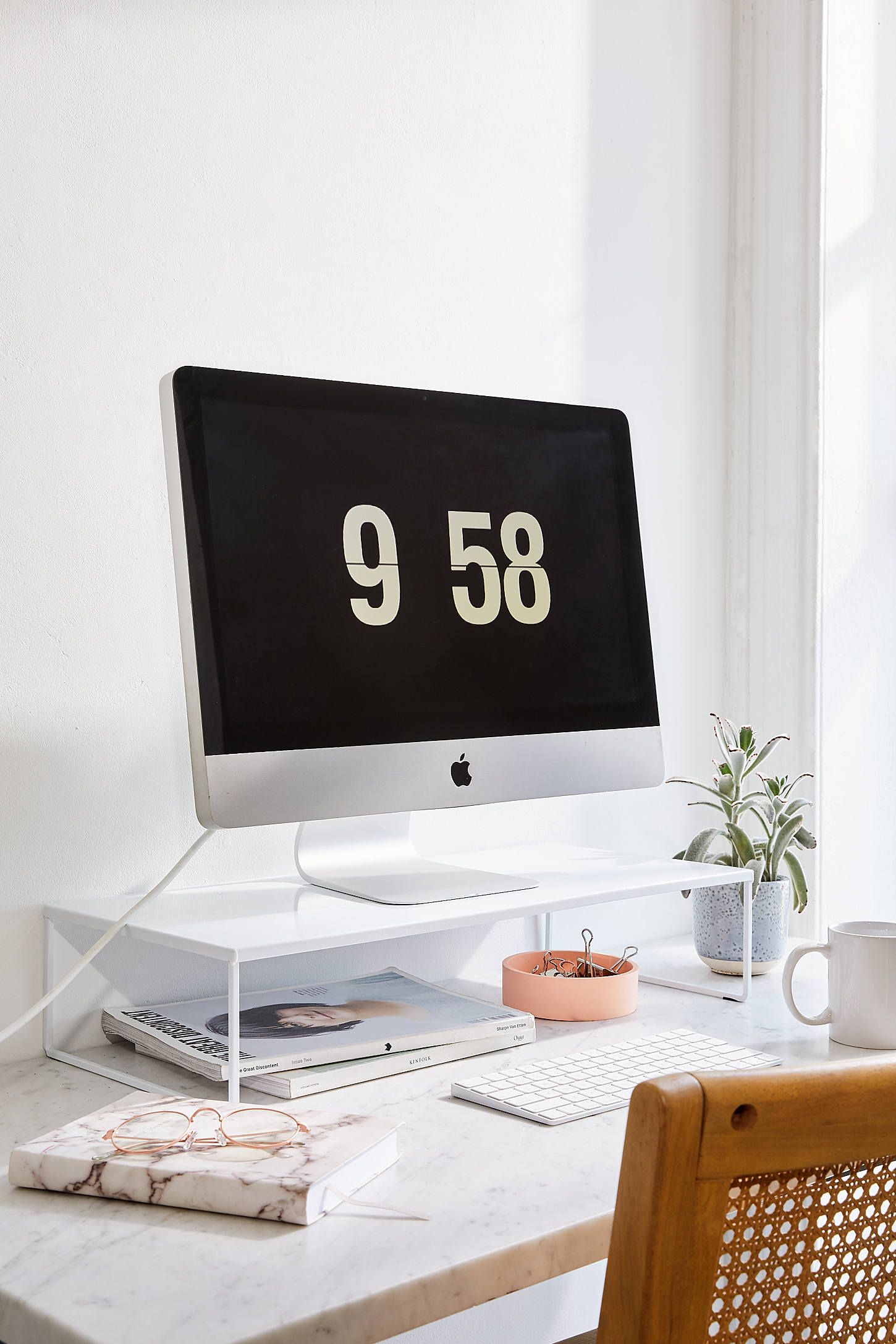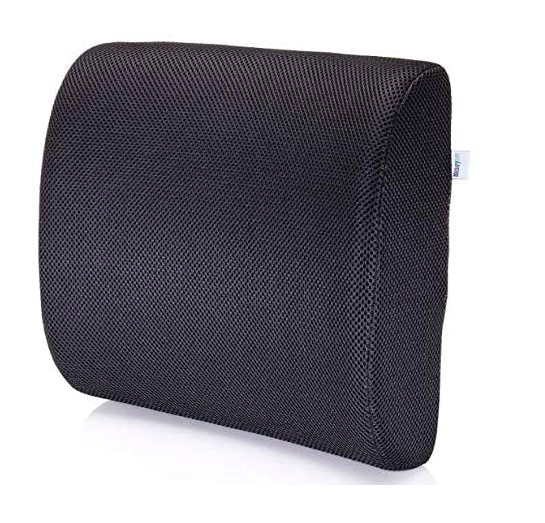Stiff From Sitting All Day? These Tricks Can Help
Photographed by Beth Sacca.
I’m writing this story on the couch in my living room, which now functions as my home office. In a few hours, I’ll get up, crack my back, and realize how sluggish I feel from sitting all day. Tomorrow, I’ll stream a yoga workout after five, I’ll tell myself, but most days, by the time I’m done working from my couch, I’m ready to chill on my couch.
On average, Canadian adults spend about 10 hours a day on our butts, and women are more sedentary than men, according to Statistics Canada. This data was recorded between 2007 and 2011, so it’s fair to assume that the numbers have gone up in light of coronavirus and the social-distancing measures that are keeping us at home and racking up the couch and screen time.
AdvertisementADVERTISEMENT
And while that Tiger King marathon may seem fun in the moment, prolonged inactivity can legit kill you. (Studies have found that sitting for more than eight hours with no exercise has similar health effects as smoking.) Not to mention it can put major strain on your back muscles, neck, and spine.
Why is sitting down so bad for us?
There are a lot of theories, but the thought is that sitting relaxes the body's biggest muscles; which means you're not using up glucose from your blood, and that could increase your risk of type 2 diabetes. Sitting too long also means YOU'RE NOT DOING ANYTHING. And, we know that inactivity is linked to a number of health concerns from high blood pressure and cholesterol, and a slew of illnesses — from diabetes to cardiovascular disease to even cancer and anxiety.
Finally, from a joints perspective, sitting contracts the hip flexors (the psoas muscles) and makes our glutes inactive, which can lead to hip and back pain, says Toronto-based osteopath and celebrity body and posture expert Dr. Liza Egbogah. Our poor posture doesn’t help the overall situation. “Slouching over a computer can actually decrease the chest cavity," she says. "You’re compressing the lungs so they’re not able to fully expand when you take a breath." This shallow breathing can increase anxiety, because the body feels like it’s not getting enough oxygen.
AdvertisementADVERTISEMENT
What can I do to counteract the effects of sitting?
Stepping away from your computer or couch can chill you out and potentially boost your immunity, according to studies. Stretching is also a great idea because it releases tension and gets blood flowing through the bod. But even just taking a break from sitting to make a cup of tea, or getting up to reset and shake it off every 30 minutes, can help. Or stand up while working. "There’s no need to sit and take that phone call," says Egbogah. "Ideally you want to pace or walk around. If you’re moving, you’re getting the circulation going and that’s much healthier for you than sitting in one position than standing in one position."
Once you log off for the day; try to stay active: the Canadian Society for Exercise Physiology recommends that adults get at least 150 minutes of moderate-to-vigorous activity a week.
How to make your WFH setup better
All that moving around won’t do you any good if you’re still working from your couch (or worse, your bed) warns Egbogah. She recommends setting up at a table (like a kitchen or dining room table, not a coffee table) with a firm chair that has a high back and to make sure your feet can rest comfortably on the floor. A basic monitor riser is good for propping up your laptop and an ergonomic wireless keyboard will help keep your forearms resting on the table to avoid hunching your shoulders.
AdvertisementADVERTISEMENT
Try working in natural or sufficiently bright light so you’re not slouching forward towards the computer screen. Last, but certainly not least, try to take phone calls with earphones to avoid straining your neck — having to hold the phone up that can lead to neck and shoulder pain, says Egbogah.
COVID-19 has been declared a global pandemic. Go to the Public Health Agency of Canada website for the latest information on symptoms, prevention, and other resources.
At Refinery29, we’re here to help you navigate this overwhelming world of stuff. All of our market picks are independently selected and curated by the editorial team. If you buy something we link to on our site, Refinery29 may earn commission.
AdvertisementADVERTISEMENT









